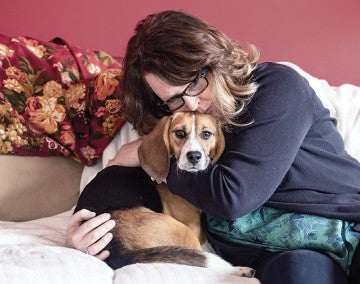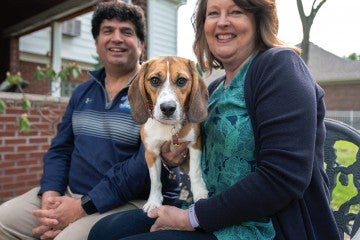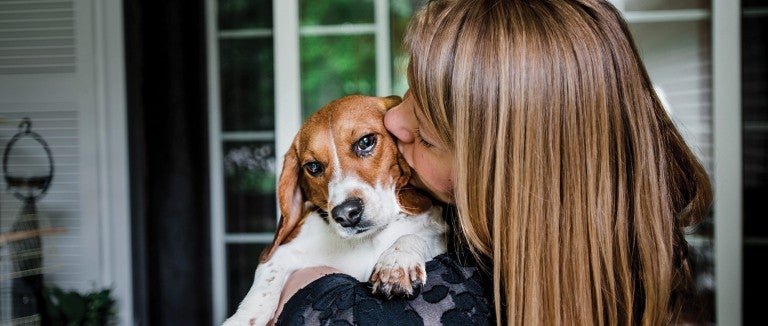To see Teddy and Millie now —playful and friendly, outgoing and affectionate—you’d never guess what they’ve endured in their short lives. As part of an unnecessary test commissioned by Dow AgroSciences (now Corteva Agriscience), the beagles were force-fed a pesticide every day for nearly a year at a laboratory in Michigan.
When the Humane Society of the United States released our undercover investigation in March, more than 500,000 people signed our petition and called the company to demand the dogs’ release. Corteva announced a week later it had ended the test and later released the surviving 32 dogs to Michigan Humane Society, an HSUS shelter and rescue partner. (The HSUS provided a grant to assist with their care.)
More than 800 people applied to adopt one of the beagles, and Teddy and Millie were among the first to find the homes they deserve. Here are their stories:
We truly are the lucky ones to have the opportunity to bond with such a special little girl.
Tammera Roeske
Her outgoing, social nature also makes her an excellent ambassador for dogs like her. People are shocked to hear Millie’s story, Roeske says, and are horrified to learn that more than 60,000 dogs are used in research and testing in the United States each year. (The Humane Society of the United States is fighting to advance nonanimal alternatives and end unnecessary tests like Millie’s.)
“People go out of their way to thank us for giving Millie such a loving home,” Roeske says, “but we truly are the lucky ones to have the opportunity to bond with such a special little girl.”



Like Millie, Teddy is helping spread awareness about dogs used in testing and research. He and his family have been traveling to the state capitol building in Lansing to support a bill that would require laboratories to release dogs and cats to shelters for adoption after testing is complete, rather than euthanize them. Teddy is proof that former lab animals can lead happy, normal lives, Guest says.
“I expected him to be more frightened of humans, given what others did during the testing, or even angry,” she says. “But he is just so happy to be free and has a great capacity for forgiveness and love.”
Want more content like this?
This was written and produced by the team behind All Animals, our award-winning magazine. Each issue is packed with inspiring stories about how we are changing the world for animals together.
Learn MoreSubscribe


